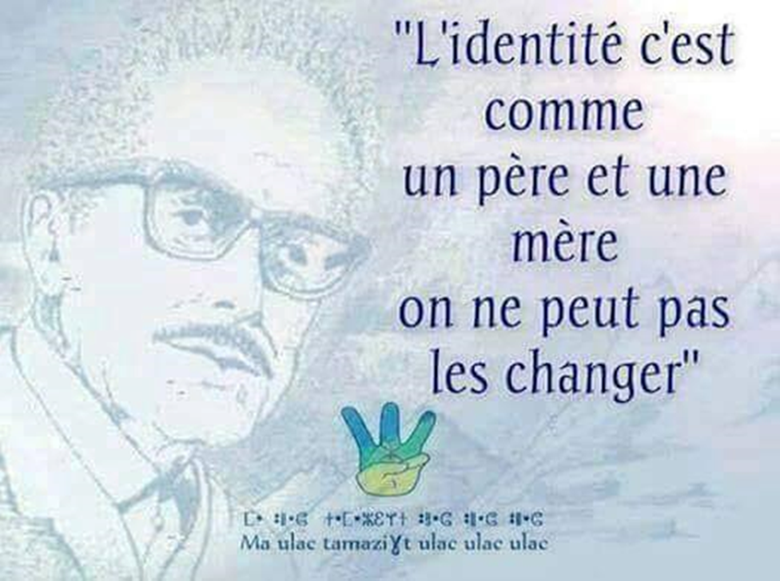Identity and Arabization 2

We will try to divide this sensitive and thorny topic into sessions, each session in which we will discuss a partial idea. As for what follows:
Much ink has been spilled and debated on the issue of Algerian identity, and two trends can be observed on this issue:
First: the received current
Second: The original current
It is noted that the alienated trend has become popular and dominant in the arena due to unilateral politics for more than thirty years. I will not talk about this trend, as it is known for its connection to foreign interests, and it is still distorted from time to time in the written media in particular. I will not mention the names of this trend to the extent of their origins, as they are known to the general public. And the private, they adapt to any system and any ideology, they are completely chameleon-like in color because their interests impose that on them..

As for the authentic movement, it has been suppressed for thirty years, and it is still suppressed, but it has begun to spread and gain new supporters, and if it is allowed to operate freely, it will sweep the scene because it is authentic, and here lies its strength and vitality, and it sees through history and does not jump on it or visit it as the usurped movement does. For him, the Algerian identity is Berber and always Amazigh, because history says so, and the truth also declares so, and everything other than that is slander, forgery, deception and lies.

Hence, we review together Arabization in Algeria through its major stages, as it has passed through the following stages:
1/The invasion stage
2/Bani Hilal stage
3) The Andalusian stage
4) The stage of the Makhzen tribes in the Turkish era
5) Popular reaction against France
6) Organized Arabization

Al-Shorouk Al-Arabi (a Baathist newspaper published in Algeria) wrote an investigation about the group system in Kabyle countries, and this system is purely Amazigh because it exists in every Amazigh society that is not mixed with others, such as Beni Mizab and the country of Souss in Morocco, in the Nafusa Mountains in Libya, and on the island of Djerba in Tunisia, but the journalist brother attributed this The regime to the Arabs, where he said: “This is how the Arab regime succeeds in solving problems without them reaching the judiciary,” knowing that the investigation was conducted on an Amazigh community that was researched, and I want to remind the journalist of a fact, which is: that in Algeria there are five Arab tribes known in their stables so far, which can be confirmed. Without this system...

So this system is the school content in our schools of all kinds, and it is devoid of the Algerian reality, its history, culture and civilization. In other words, there is a terrible disconnect between it and the Algerian historical and social depth.
Many prophets have wondered about this shameful phenomenon, but what should the poor prophet do in the face of a political will to falsify everything?
Source: websites

